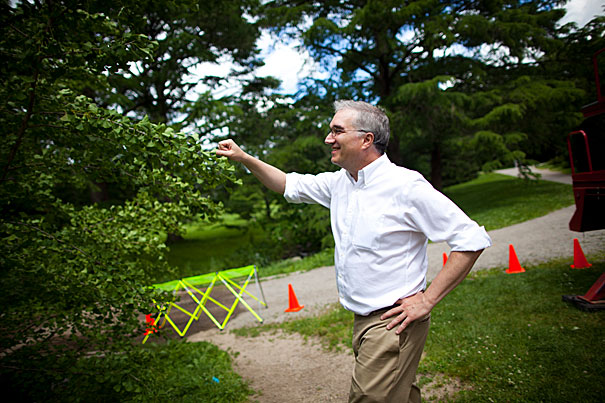Health
-
Lin Test
text with link. This is a quiz. Some text Name Name Quo modo autem philosophus loquitur? Tecum optime, deinde etiam cum mediocri amico. Invidiosum nomen est, infame, suspectum. Name Name…
-

Gender-affirming care is rare, study says
Fewer than 1 in 1,000 transgender youth receive hormones or puberty blockers

-

Nature offers novel approach to oral wound care
Slug’s sticky mucus inspiration behind adhesive hydrogel that can seal wounds in wet environment

-

Time for a rethink of colonoscopy guidelines?
Change informed by new findings would help specialists focus on those most at risk, researcher says

-

Should pharmacists be moral gatekeepers?
‘The problem is not opioids,’ says author of ‘Policing Patients’ — it’s overdose, pain
-

The deadly habit we can’t quite kick
Actions by tobacco companies worry researcher even amid ‘dramatic decrease’ in smoking among young Americans

-
Finding our way
Elizabeth Spelke, a professor of psychology, discussed research on how humans develop navigational skills in an event at the Barker Center.
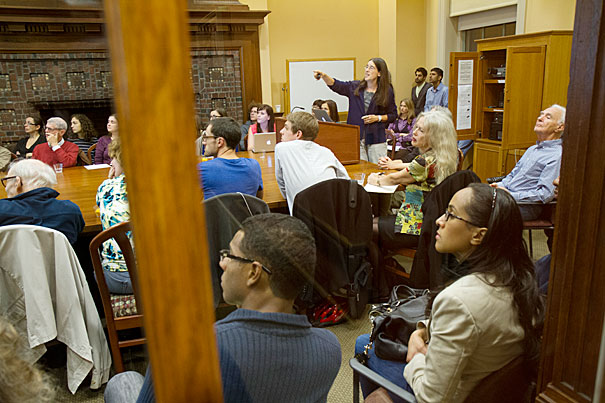
-
Pecking order
Harvard researchers have found that a new investigation of tissues and signaling pathways in finches’ beaks reveals surprising flexibility in the birds’ evolutionary tool kit.

-
For a health reform model, try Brazil
Scholars and public health experts gathered at the Harvard School of Public Health to examine Brazil’s progress toward meeting the United Nations’ Millennium Development goals, and to see if there are lessons that can be applied to other countries.
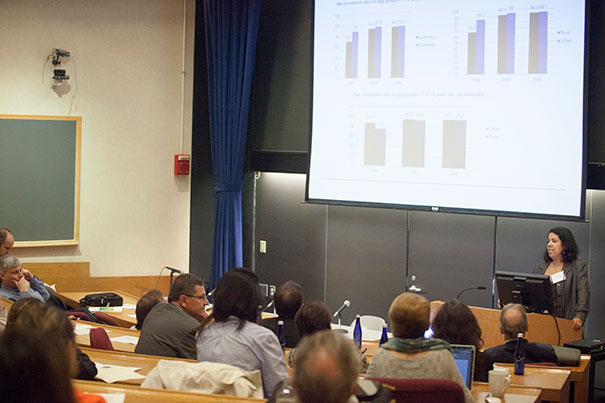
-
Rapid acts of kindness
In a series of experiments, Harvard researchers found that people who make quick decisions act less selfishly than those who deliberate.
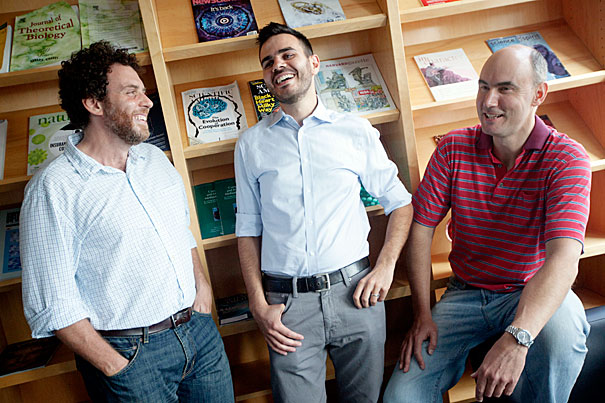
-
Targeting childhood obesity early
With childhood obesity now affecting 17 percent of American children, the nation is rallying around the concept that serious action is required. Harvard researchers have identified some key triggers for obesity in early childhood.

-
Fat fighters found in fat tissue
Researchers at Harvard Medical School and Harvard-affiliated Beth Israel Deaconess Medical Center have found that a type of immune cell plays a role in guarding against obesity, diabetes, and metabolic disease.

-
Skin cancer detection breakthrough
Researchers at Harvard-affiliated Brigham and Women’s Hospital have pinpointed when seemingly innocuous skin pigment cells mutate into melanoma.
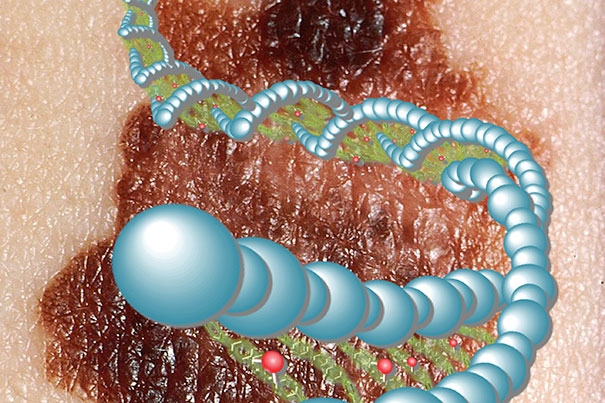
-
Pain relievers increase hearing loss risk
According to a study by researchers at Harvard-affiliated Brigham and Women’s Hospital, women who took ibuprofen or acetaminophen two or more days per week had an increased risk of hearing loss.

-
Health in the balance
In research, treatment, and outreach, researchers from Harvard Medical School are taking on the childhood obesity epidemic in the United States. This is the first in a three-part series.

-
Mapping a genetic world beyond genes
Most of the DNA alterations that are tied to disease do not alter protein-coding genes, but rather the “switches” that control them. Characterizing these switches is one of many goals of the Encyclopedia of DNA Elements (ENCODE) project.
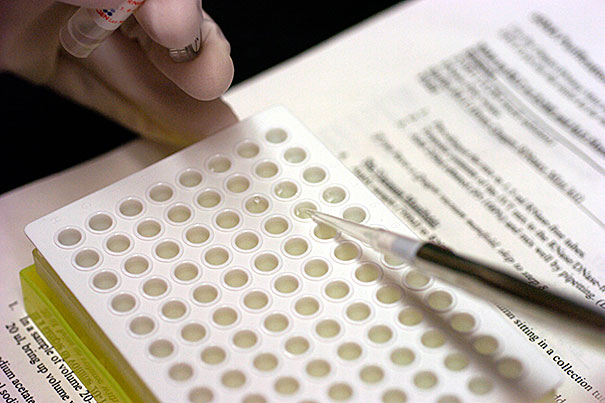
-
Forward thinking on HIV
A research team led by Martin Nowak has developed a technique for modeling the effects of various HIV treatments and for predicting whether the treatments will cause the virus to develop resistance.
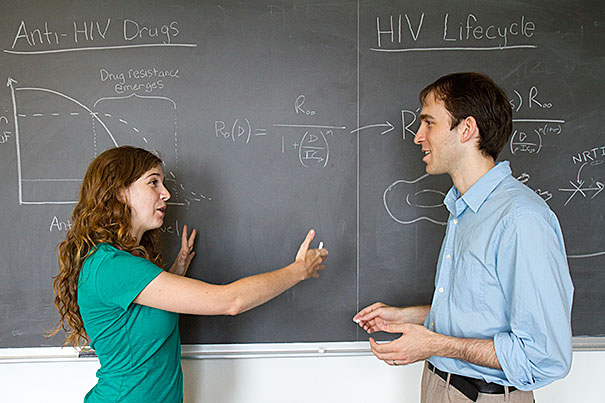
-
Bringing the psych lab online
A team of researchers from Harvard and Wellesley College shows that data gathered from online volunteers can be just as good as data collected in the lab.
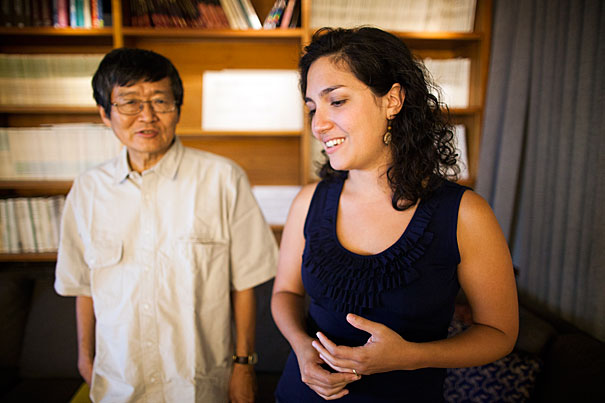
-
Tapping the body to fight disease
Researcher Biju Parekkadan is developing devices that employ cell therapy to help people with organ failure.
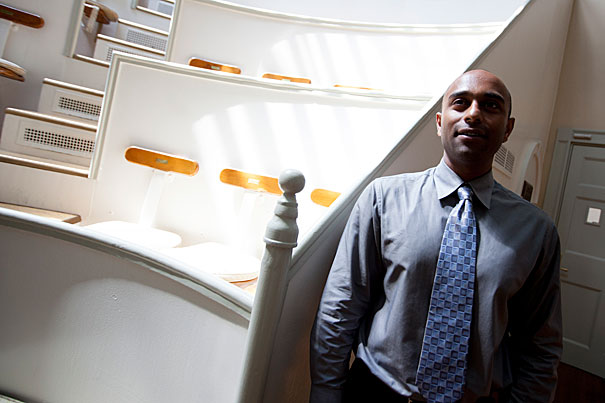
-
Vitamin D’s impact on infection
A study led by Harvard researchers of Mongolian schoolchildren supports the possibility that daily vitamin D supplementation can reduce the risk of respiratory infections in winter.

-
Synthetic future
In the synthetic biology lab of Professor Pamela Silver, researchers are looking for ways to make biological engineering faster, cheaper, and more predictable.
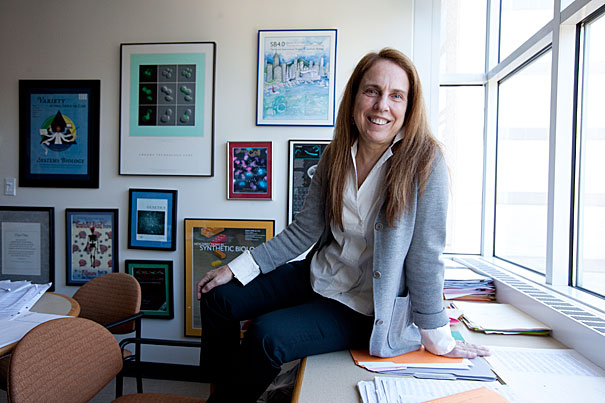
-
A story that doesn’t hold up
A study conducted by Professor of Psychology Richard J. McNally and colleagues from the University of Groningen and the University of Amsterdam is casting doubt on the “amnesia barrier” that has long been a hallmark of multiple personality disorder, now called dissociative identity disorder, by demonstrating that patients have knowledge of their other identities.

-
CYCLOPS genes an Achilles’ heel in tumors?
Researchers at Harvard-affiliated Dana-Farber Cancer Institute and the Broad Institute of Harvard and MIT used new technology to explore a 19-year-old theory, discovering what may be an Achilles’ heel for cancer cells: essential genes disrupted in the process of becoming cancerous that can be attacked further with drug therapy.
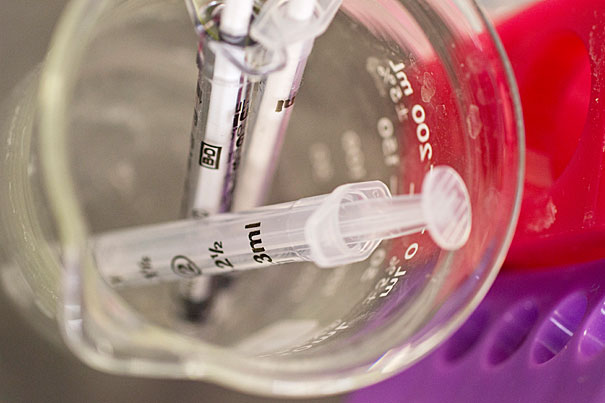
-
The tangled web around spiders
A biologist with an affinity for spiders shared his passion, taking the audience on a tour of arachnids large and small and making a pitch for their conservation as natural pest control.
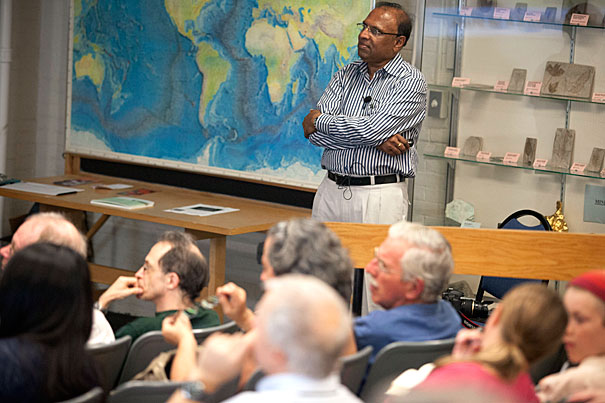
-
Simplifying multidrug therapies
As described in a paper published in the Proceedings of the National Academy of Sciences, a research team found that by studying how drugs interact in pairs, researchers can predict how larger combinations of drugs will interact.
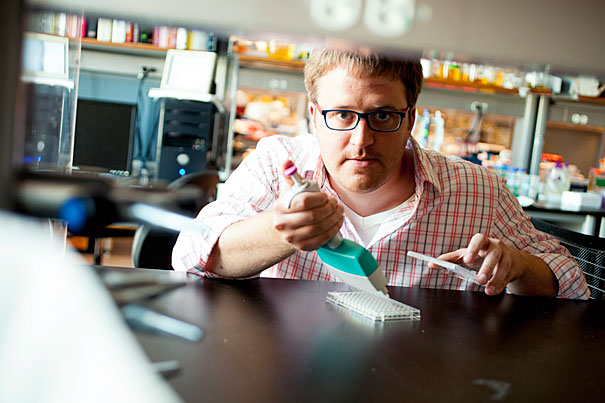
-
Estrogen and female anxiety
Some women’s vulnerability to anxiety and mood disorders may be explained by their estrogen levels, according to new research by Harvard and Emory University neuroscientists.
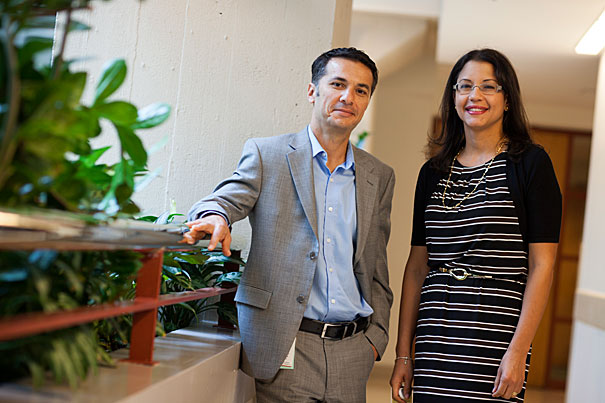
-
Mercury pollution, still spreading
With mercury contamination from coal burning and other industrial processes spreading in the environment, a new book edited by a Harvard Medical School staff member offers an overview, touching on chemistry, biology, and public health.

-
Stars in the making
A paper authored by Harvard’s Eli Visbal with colleagues from the California Institute of Technology and Tel Aviv University suggests that it may be far easier than commonly thought to peer deep into the universe’s history and observe the telltale signs of the formation of the first stars and galaxies.

-
Health care savings, naturally
Though questions persist about whether natural remedies are as effective as their pharmacological cousins, one Harvard researcher is trying to understand the economic benefits people receive by relying on such traditional cures.
-
Giving slime the slip
A team of Harvard scientists has developed a slick way to prevent the troublesome biofilms from ever forming on a surface.

-
Alcohol abuse after weight loss surgery?
Experts on the use of bariatric surgery for the treatment of obesity gathered at the Radcliffe Institute for Advanced Study earlier this month for a two-day seminar examining new evidence that stomach surgery for the treatment of obesity has unexpected side effects, including an increased incidence of alcohol abuse among patients.
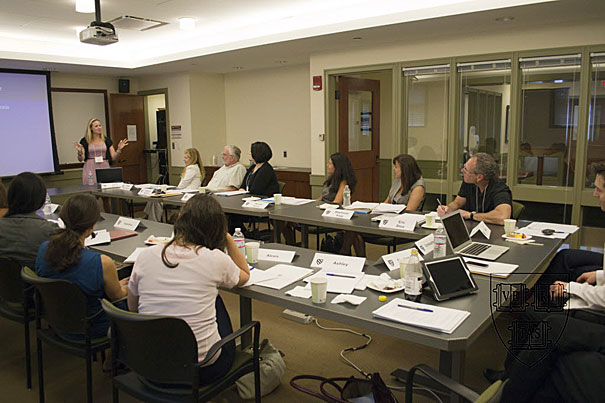
-
A fresh look at mental illness
In a paper published in Neuron, Joshua Buckholtz and co-author Andreas Meyer-Lindenberg identify a biological reason for why many mental disorders share similar symptoms, a situation that makes diagnosis challenging.
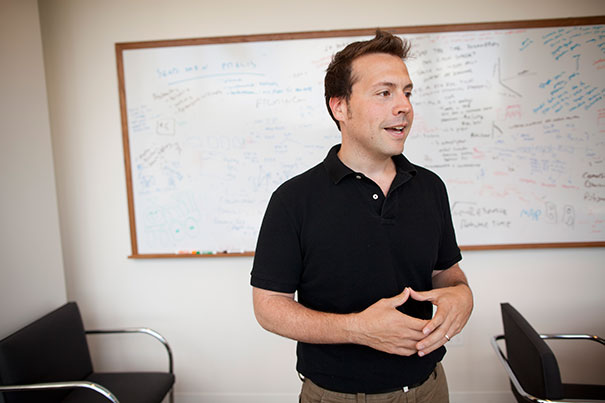
-
Expanding Medicaid to low-income adults
A new study from Harvard School of Public Health (HSPH) finds that expanding Medicaid to low-income adults leads to widespread gains in coverage, increased access to care, and — most importantly — improved health and reduced mortality.

-
Fixing the way we fix the brain
With neurodegenerative diseases affecting millions and having the potential to bankrupt the U.S. health care system, Harvard Medical School, seven pharmaceutical companies, and the Massachusetts state government have formed the Massachusetts Neuroscience Consortium. The goal: to offer new collaborative research models.
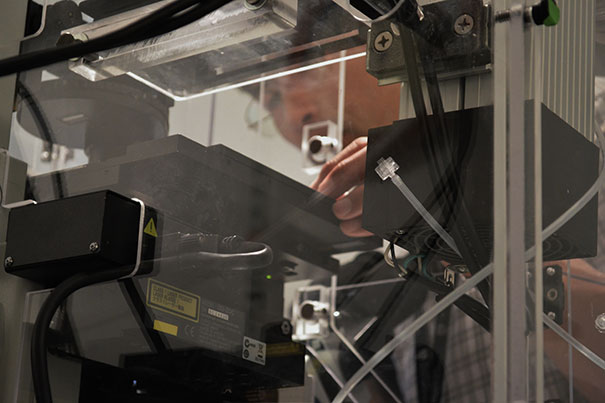
-
What wakes me
Clifford Saper, chair of neurology at Harvard Medical School, and colleagues at Beth Israel Deaconess Medical Center recently discovered a brainstem area that senses oxygen dips and drives waking.
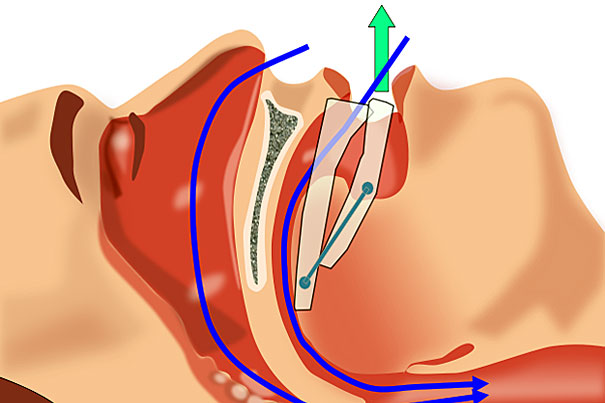
-
New branch of science
Scientists from the Arnold Arboretum and the University of Colorado are working to define for the first time the complete microbiome of a tree.
